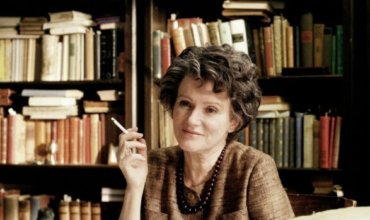English mathematician and logician, Alan Turing, helps crack the Enigma code during World War II.
The Imitation Game comes from author Andrew Hodges’s book Alan Turing: The Enigma, with a screenplay by newcomer Graham Moore and direction from Morten Tyldum. The film explores the life of Alan Turning, with on obvious focus on his involvement in code breaking during World War 2.
Graham Moore’s screenplay is well crafted, cutting across a few different eras the film explores the defining aspects of Alan Turing’s life from a boy to a mature man. It handles its subject matter in a manner that holds the audience’s interest without delving too literally into the puzzles of cryptography and mathematics which Turing devoted himself to.
The characterisation of Turing himself is detailed and thorough with a strong, progressive arc. Despite juxtaposing different periods of time that comprise of the most profound events in Turing’s life, the script unfolds organically in the context of the story.
With much of the film taking place in a small relatively uneventful location, the story focuses on effectively articulating the importance of the work Turing and his team were undertaking. Using cuts to the war machines of WW2 and bombing raids at key moments proves to be effective while as much as this is an event driven story it’s also a character driven drama.
As if the nature of the work being undertaken wasn’t compelling enough, the film also weaves in Turing’s personal challenges underpinning the film which overall creates an interesting tale of triumph and adversity. Despite a serious and dramatic undertone it’s interesting to see some comedic moments creeping their way into the film, particularly in the first act.
With such a strong focus on the one character, The Imitation Game was always going to be heavily reliant on the one performer to carry it, and Benedict Cumberbatch proves an excellent choice. His detailed and consistent performance is impressive, it’s fascinating to watch his mannerisms and physical performance as much as his dramatic performance.
The supporting cast is also good however the actors have far less to do, Keira Knightley and Matthew Goode have the most prominent supporting roles with Goode proving the stronger of the two. Knightley has a few moments to shine but ultimately doesn’t leave a huge impression on the film.
Charles Dance and Mark Strong have even smaller roles, but both manage to make the most of their scenes with excellent delivery of dialogue and some good chemistry with Cumberbatch making for some more memorable moments in the film.
The Imitation Game proves to be fascinating, alongside the context of World War 2, we get an interesting exploration of the intelligence community, a great character study of a complex individual and a touch of social commentary on some prominent but unenlightened views held by society in the not distant enough past.
I’m giving it 8 out of 10 stars, you can catch it in cinemas around Australia from 1 January 2015.


